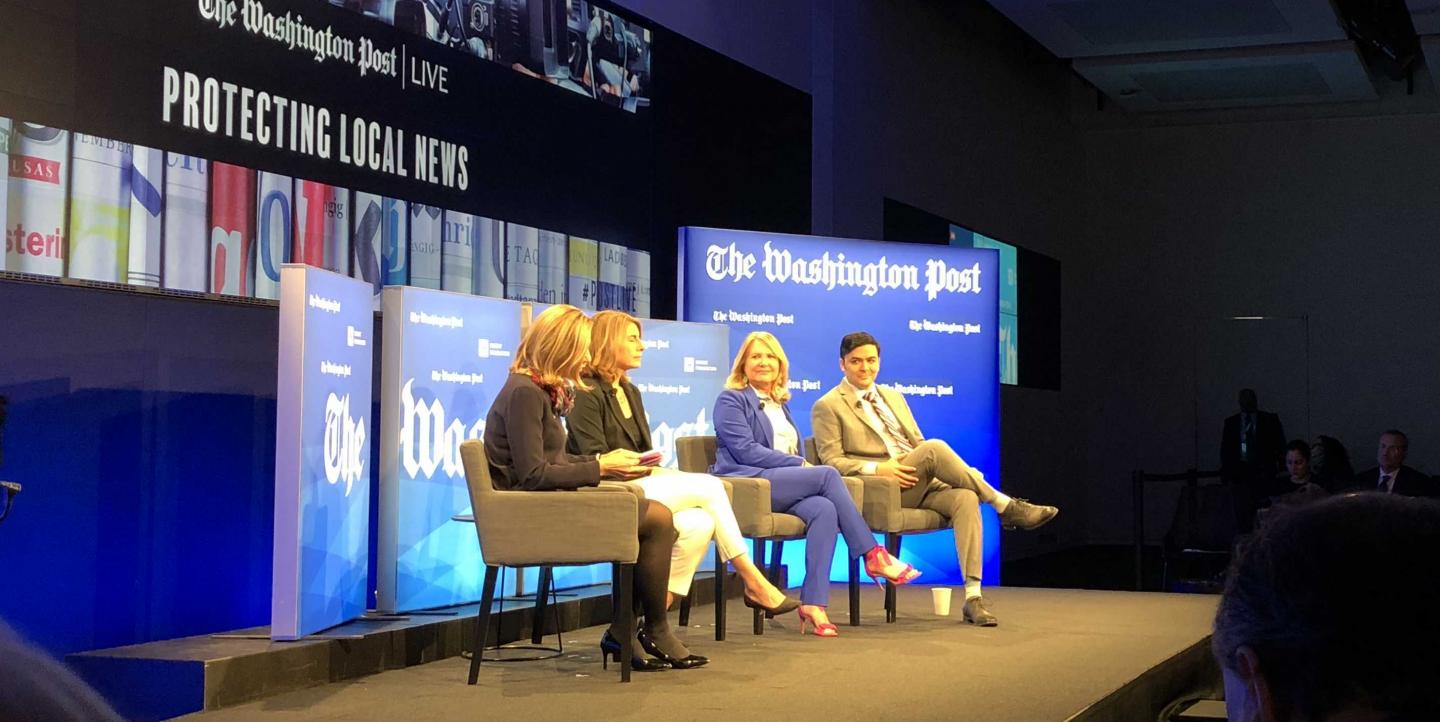In late March, Pew Research Center released a study that was equally infuriating and mind-blowing for local reporters. Among the most noteworthy findings, the report reveals that most Americans think local news is doing “just fine” financially — yet only 14 percent pay for it.
“These findings unnerved those who believe that local news is hugely important in our culture and that it needs public support to survive,” wrote Washington Post media columnist Margaret Sullivan in a column on the poll’s results.
Rather than asserting that the public needs to get with it, however, Sullivan suggests that it is journalists who have work to do.
As the former public editor of The New York Times — someone whose job was to play public defender for readers of The Times — and previous editor of her hometown newspaper, the Buffalo News, Sullivan knows what she’s talking about. Journalists, she wrote, need to do a better job of explaining our craft.
After writing the column, Sullivan moderated a Washington Post panel elaborating on that point, where she and three local news reporters discussed innovative ways to fund important local reporting, even as financial reckoning seems to loom nearer.
In an interview with IJNet, Sullivan discussed how she thinks we can better engage with readers and what she expects for the future of local journalism.
IJNet: Your column on local journalism posits that we need to better explain our craft. What is your advice to individual reporters and editors: how can we better advocate for the importance of what we do?
Sullivan: Partly by talking to people: friends, family, people we come in contact with through our work. Challenge — politely — people who claim we are producing fake news or the like. And write about it, offer to talk to groups about it. Basically, communicate and explain relentlessly.
Local newspapers are at the advantage of having easier access to our readers. How can we better engage with them? Would you advocate for more “reporter’s notebook”-type windows to the hows and whys of our reporting choices?
Yes, I think all of those tools are great. I used to do a live-chat with readers in Buffalo, and an editor's column. All of these techniques are useful. So is responding to commentary on social media where appropriate.
As public editor of The Times, you were, essentially, a critic of the paper. What would be your critique now of the way you see local newspapers reacting and attempting to adapt to the changing climate of news media?
Local newspapers are in a tough spot. They need to solidify and expand the bonds with their communities if they will survive over the long haul. And they need to keep building the bridge to the digital present and future, without abandoning the values — and in some cases, the revenue — of the past.
Many local news readers are among an older demographic and still prefer print newspapers over digital media. How can local news outlets balance these mediums, and can we use print and digital in different ways to meet the same goal: advocating for the importance of our craft?
As a longtime print person myself, I do not want to see newspapers abandon print. In fact, I think the print reading experience is often superior, and I believe that reading a print paper from cover to cover is one of the best ways to stay informed. When people give up the daily habit of reading the paper, we are more likely to lose them. Still, we have to fully recognize that most people are digitally oriented now. So we have to do both, at least for the time being.
There are some kinds of content that works best in the digital format —informational graphics are one example — and we should try to use each medium to its best advantage. This is a tough balance, of course, and I don't think that many news organizations have fully figured it out.
On the panel you moderated recently for The Washington Post, you asked the panelists whether they thought there would be enough nonprofit-fueled journalism to supplement what’s being lost at the local level. Do you think that nonprofits are the future of local journalism?
I think that in large urban areas, nonprofits can be a part of the answer. It's hard to imagine them filling the gap entirely. I think we will have to have a combination of things, and even with that, I'm sorry to say that I'm not tremendously optimistic about the long-term future of journalism in America's towns and smaller cities.
You started as an intern at your hometown paper. Would you do the same now? Would you advise that recent graduates or young journalists start there?
If you can get an internship at a newspaper, it's great training, and I would recommend it wholeheartedly. Those opportunities are fewer now. And that's one of the big problems because they have been a great training ground — good for the papers and good for young journalists.
Since I'm being rather dour here, I will add that I think journalism is more important than ever, and I hope that talented young people will find ways to do good work. I do believe that's possible, and I know that it's absolutely necessary if our democracy is going to function.
Margaret Sullivan is the media columnist for The Washington Post. She was a member of the Pulitzer Prize board from 2011 to 2012, and was twice elected as a director of the American Society of Newspaper Editors, where she led the First Amendment committee. Read her work for the Post here.
Main image from left to right: Margaret Sullivan, Sacha Pfeiffer, Julie K. Brown and Andrew Chavez.


